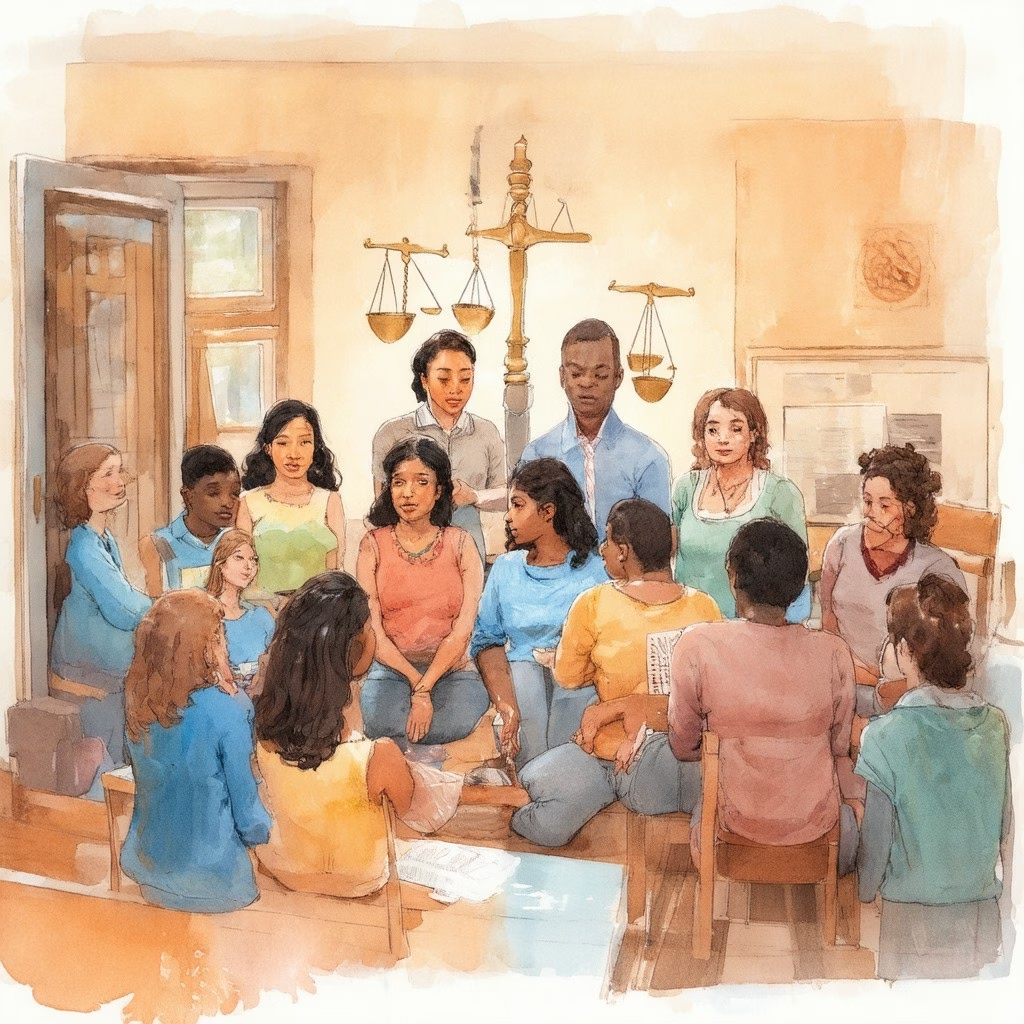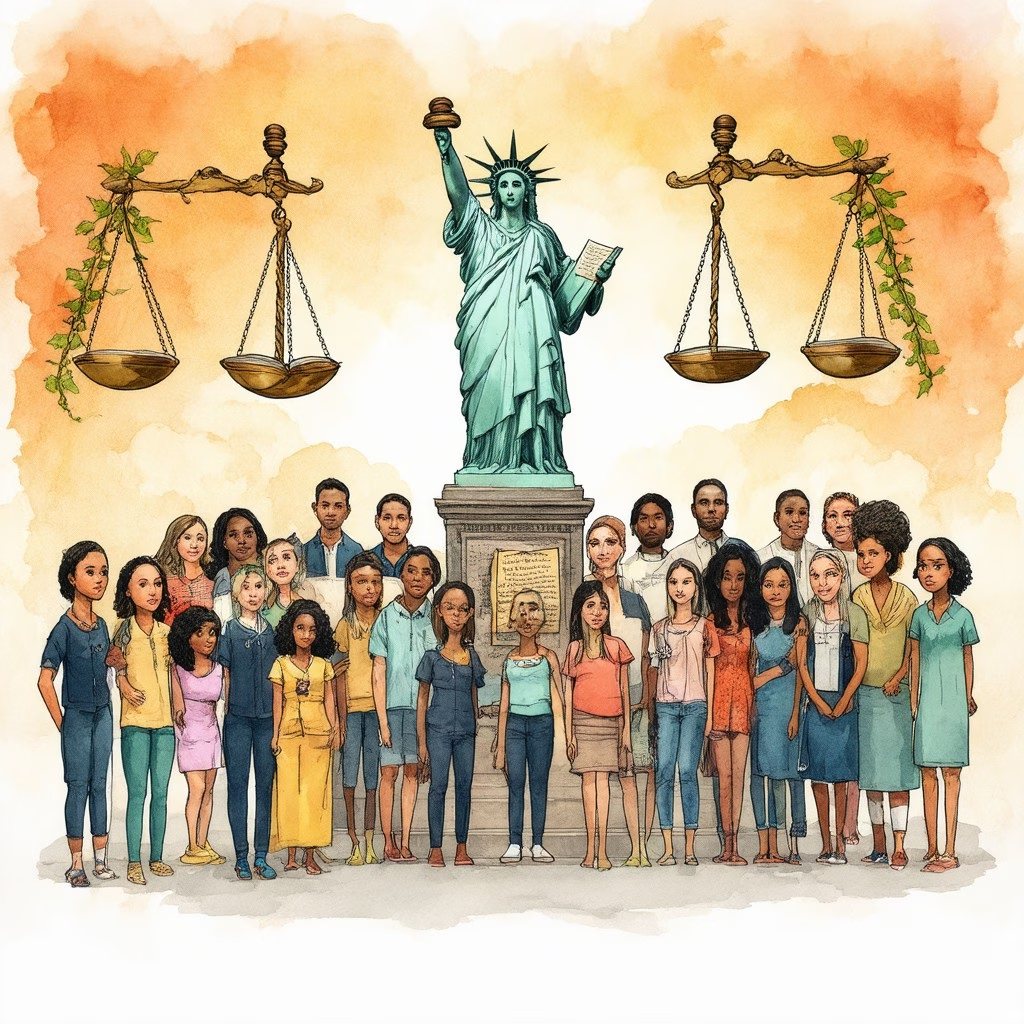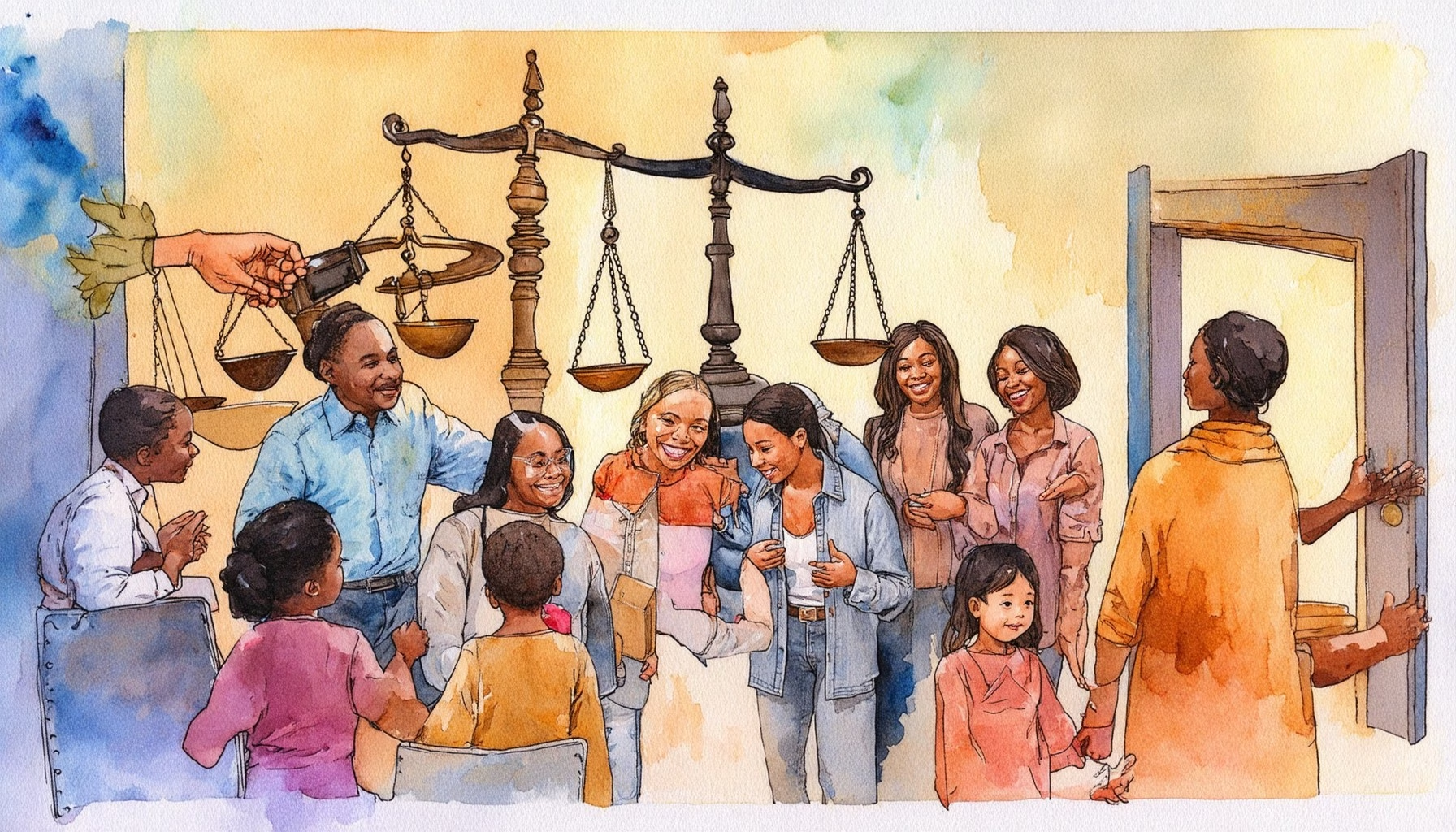Key Takeaways
- Access free legal aid across the USA through organizations like the Legal Services Corporation, designed for low-income individuals.
- Utilize pro bono programs offered by local bar associations to connect with volunteer lawyers for essential legal assistance.
- Explore law school clinics, where supervised students provide free legal consultations on various issues, including immigration.
- Find immigration legal services through non-profit agencies and community organizations that specialize in helping immigrants.
- Understand eligibility criteria for legal aid, often based on federal poverty guidelines, to access necessary resources effectively.
- Take advantage of free legal advice hotlines available 24/7, providing immediate support without financial obligations.
In today’s complex legal landscape, finding legal help USA can often feel overwhelming, especially for those navigating issues such as immigration, unemployment, or financial constraints. This article serves as your comprehensive guide to accessing free legal aid and consultations, ensuring you understand your options for obtaining the support you need. We will explore essential topics, including how to connect with a US lawyer for free, the availability of free legal services across various states like Massachusetts and Utah, and the criteria for qualifying for legal aid. Additionally, we will address common questions such as whether it costs money to speak with a lawyer and how to find immigration legal services without incurring fees. By the end of this article, you will be equipped with valuable insights and resources to help you navigate your legal challenges effectively.
How can I talk to a US lawyer for free?
Accessing legal assistance without incurring costs is possible through various resources designed to help individuals navigate their legal challenges. Here are some effective ways to connect with a lawyer for free:
Free legal advice hotline 24/7
To talk to a US lawyer for free, consider the following options:
- Legal Aid Organizations: These federally funded legal services offices provide free legal assistance to low-income individuals. They have qualified attorneys who specialize in various areas of law, including family, housing, and immigration issues. You can find local legal aid offices through the Legal Services Corporation website.
- Pro Bono Programs: Many state and local bar associations offer pro bono programs that connect low-income clients with volunteer lawyers. These attorneys agree to take cases without charging fees. Check with your state bar association for available pro bono resources.
- Free Legal Answers: The American Bar Association (ABA) offers a platform called Free Legal Answers, where individuals can post legal questions and receive answers from volunteer attorneys. This service is available in many states and can be accessed at Free Legal Answers.
- Law School Clinics: Many law schools operate legal clinics where law students, under the supervision of licensed attorneys, provide free legal assistance. These clinics often focus on specific legal issues, such as immigration or family law. Contact local law schools to inquire about their clinic services.
- Public Defender Services: If you are facing criminal charges and cannot afford an attorney, you have the right to a public defender. Public defenders are provided by the state to represent individuals who cannot afford legal representation.
- Online Resources: Websites like Nolo and FindLaw offer a wealth of legal information and resources that can help you understand your legal rights and options without the need for direct legal consultation.
By utilizing these resources, you can access free legal help tailored to your specific needs. Always ensure that the services you choose are reputable and suited to your legal situation.
Is there free legal aid in America?
Yes, free legal aid is available across America, primarily through legal aid organizations and various community resources. These organizations are dedicated to providing legal assistance to those who qualify based on income and specific legal needs. Legal aid services cover a wide range of issues, including family law, housing disputes, and immigration matters.
To find legal aid in your area, you can visit the Legal Services Corporation website, which offers a directory of local legal aid offices. Additionally, many states have specific programs aimed at assisting residents with legal issues, ensuring that everyone has access to justice, regardless of their financial situation.

Is There Free Legal Aid in America?
Yes, there is free legal aid available in America for individuals who qualify based on income and legal needs. Civil legal aid provides essential legal assistance to low- and middle-income individuals facing non-criminal legal issues. These issues often include access to basic necessities such as healthcare, housing, government benefits, employment, and educational services.
Eligibility for Legal Aid
To qualify for free legal aid, individuals typically must meet specific income guidelines, which vary by state. Many organizations use the federal poverty guidelines as a benchmark. For example, a household earning below 125% of the federal poverty level may be eligible for assistance. Understanding these guidelines is crucial for accessing legal aid resources.
Types of Services Offered
Civil legal aid organizations provide a range of services, including:
- Legal advice and representation in court
- Assistance with paperwork and legal documents
- Education on legal rights and responsibilities
- Mediation services to resolve disputes
These services are vital for individuals navigating complex legal situations, ensuring they receive the support they need. For more information on how to access these services, you can visit the Legal Services Corporation website, which offers a directory to locate local services.
What is the maximum income to qualify for legal aid?
Understanding the income thresholds for legal aid is crucial for individuals seeking assistance. Legal aid programs across the United States, including Legal Services Corporation, set specific income limits to determine eligibility for their services. Generally, to qualify for legal aid, individuals must demonstrate that their income falls below a certain level, which varies by state and family size.
Legal aid legal services
In many states, the maximum income to qualify for legal aid is often set at 125% to 200% of the federal poverty level. For example, in Alabama, individuals with a gross income of up to $30,000 may be eligible for legal representation in various cases, including criminal, family, and immigration matters. It’s important to note that these thresholds can differ based on family size and specific circumstances. A family of four may have a higher income limit to qualify for assistance.
For the most accurate and updated information regarding income limits and eligibility criteria, individuals are encouraged to consult their local legal aid office or resources like Gov Guider. This platform provides comprehensive support in navigating the legal aid application process.
Legal services aid
Legal services aid encompasses a range of support options available to low-income individuals. These services can include free legal consultations, representation in court, and assistance with paperwork related to various legal issues. Many organizations, such as American Bar Association and American Civil Liberties Union, offer resources and directories to help individuals find legal aid services in their area.
Additionally, exploring local charities and nonprofit organizations can provide further avenues for legal assistance. For instance, in Massachusetts, there are specific programs designed to help with legal fees, ensuring that individuals have access to the necessary support for their legal challenges. Utilizing resources like Gov Guider can help you identify the right legal services available to you.
How can I talk to an immigration lawyer for free in the USA?
Accessing free immigration legal services is essential for many individuals navigating the complexities of immigration law. Fortunately, there are several avenues to connect with a free immigration lawyer in the USA. Here are some effective options:
- Legal Aid Organizations: Numerous legal aid organizations across the USA provide free or low-cost immigration legal services. A comprehensive list can be found on LawHelp.org, which connects individuals with local resources based on their state.
- Non-profit Agencies: Various non-profit organizations specialize in immigration assistance. Websites like ImmigrationLawHelp.org and ImmigrantsRising.org can help you locate nearby providers who offer free consultations and legal support.
- Immigration Legal Clinics: Many community organizations and legal aid societies host free legal clinics where you can consult with immigration lawyers. These clinics often require prior registration and are scheduled at specific times, so check local listings for availability.
- Online Chat Services: Some immigration attorneys provide free online chat services, allowing you to ask preliminary questions and receive basic legal advice without any cost. This can be a convenient way to get initial guidance.
- Pro Bono Programs: Law schools and local bar associations frequently run pro bono programs that offer free legal services to individuals with limited income. Information about these programs can be accessed through the American Bar Association or the Department of Justice website.
- USCIS Contact Center: The USCIS Contact Center offers phone support and online resources to assist with immigration inquiries. While not a substitute for legal advice, it can help clarify procedural questions.
- American Immigration Lawyers Association (AILA): AILA provides a lawyer referral service that connects individuals with licensed immigration attorneys who may offer free consultations or reduced fees based on financial need.
- Catholic Charities: Many Catholic Charities branches across the country provide immigration services, including legal assistance. They often cater to low-income individuals and families seeking help with immigration matters.
- Local Bar Associations: Reach out to your local bar association for referrals to pro bono attorneys or those who operate on a sliding scale fee basis. They can guide you to reputable legal resources in your area.
- Community Organizations: Various community organizations and social service providers offer citizenship classes and assistance with the naturalization process, often including access to legal advice.
Be Aware of Scams
It is crucial to avoid notario públicos or immigration consultants who are not authorized to provide legal advice. Always verify that the individual or organization is accredited by the Department of Justice.
Check Eligibility Requirements
Many free legal services have specific income or eligibility criteria. Ensure you meet these requirements before seeking assistance. For more information on legal aid resources, visit Understanding Legal Aid.

Does it cost money just to talk to a lawyer?
When considering legal assistance, many individuals wonder about the costs associated with consulting a lawyer. Understanding these costs can help you make informed decisions about seeking legal aid. Here’s a breakdown of what to expect:
Initial Consultation Fees
- Free Consultations: Many lawyers offer a free initial consultation to discuss your case and determine if they can assist you. This is common in personal injury, family law, and criminal defense cases.
- Reduced Rate Consultations: Some attorneys may charge a lower fee for the first meeting, allowing potential clients to gauge their services without a significant financial commitment.
- Standard Hourly Rates: In some cases, lawyers may charge their regular hourly rate for the initial consultation. This is more typical in complex legal matters or specialized fields.
Factors Influencing Costs
- Type of Law: Different areas of law have varying fee structures. For example, corporate lawyers may charge more than family law attorneys.
- Location: Legal fees can differ widely depending on the region. Urban areas typically have higher rates compared to rural locations.
- Experience and Reputation: Established lawyers with a strong track record may charge higher fees due to their expertise and demand.
For more detailed information on legal fees and finding a lawyer, you can refer to resources like the American Bar Association or local bar associations, which provide guidance on legal costs and how to choose a lawyer.
Legal Help for Immigrants
Accessing legal help for immigrants is crucial, especially for those navigating complex immigration laws and processes. Various resources are available to provide assistance, including legal aid services specifically designed for undocumented immigrants and those seeking to understand their rights. Organizations like the U.S. Citizenship and Immigration Services offer guidance on immigration legal services, while local legal aid offices can connect individuals with free immigration lawyers.
Legal Aid for Undocumented Immigrants
Legal aid for undocumented immigrants is available through various nonprofit organizations and legal service providers. These services often include representation in immigration court, assistance with asylum applications, and help with family reunification processes. Many of these organizations operate on a pro bono basis, ensuring that individuals who cannot afford legal fees still receive the necessary support. For example, the Legal Services Corporation provides funding to local legal aid programs that assist undocumented immigrants.
Legal Help for Illegal Immigrants
For illegal immigrants facing legal challenges, finding a free lawyer can be a daunting task. However, several resources exist to help connect individuals with legal assistance. Organizations such as the American Civil Liberties Union and local immigrant rights groups often provide legal consultations and can refer individuals to attorneys specializing in immigration law. Additionally, many states have legal aid services that focus on immigration issues, ensuring that everyone has access to legal support regardless of their immigration status. If you’re in Utah, for instance, you can find legal help utah that caters specifically to immigrant needs.
How can I talk to a US lawyer for free?
Talking to a US lawyer for free is possible through various resources designed to provide legal assistance without charge. One of the most accessible options is the **free legal advice hotline 24/7**, which connects individuals with licensed attorneys who can offer guidance on a range of legal issues. These hotlines are often staffed by volunteers or legal professionals who are committed to helping those in need. Additionally, many law schools offer free legal clinics where students, supervised by experienced attorneys, provide legal advice and assistance.
For those seeking specific legal help, organizations like the **Legal Services Corporation** (LSC) offer a network of legal aid programs across the country. These programs are designed to assist low-income individuals with civil legal matters, ensuring that everyone has access to justice. You can find more information about available services through the [Legal Services Corporation](https://www.lsc.gov/).
Free legal advice hotline 24/7
The **free legal advice hotline 24/7** is a vital resource for individuals needing immediate legal assistance. These hotlines are available at all hours, allowing users to speak with a lawyer without any financial obligation. The attorneys on these hotlines can provide preliminary advice, help assess your legal situation, and guide you on the next steps to take.
Many states have their own hotlines, and you can often find local resources through websites like [Nolo](https://www.nolo.com/) or the American Bar Association. These platforms can direct you to the appropriate hotline based on your location and legal needs.
Free legal advice USA
In addition to hotlines, there are numerous organizations across the USA that offer **free legal advice**. These include non-profit legal aid organizations that focus on specific issues such as housing, family law, and immigration. For example, the **American Civil Liberties Union** (ACLU) provides resources and legal assistance for civil rights issues.
If you are looking for **legal aid in Utah**, resources like [Utah Legal Services](https://www.utahlegalservices.org/) can help connect you with free legal assistance tailored to your needs. Furthermore, websites like [FindLaw](https://www.findlaw.com/) offer directories of legal services that can help you find free or low-cost legal advice in your area.




